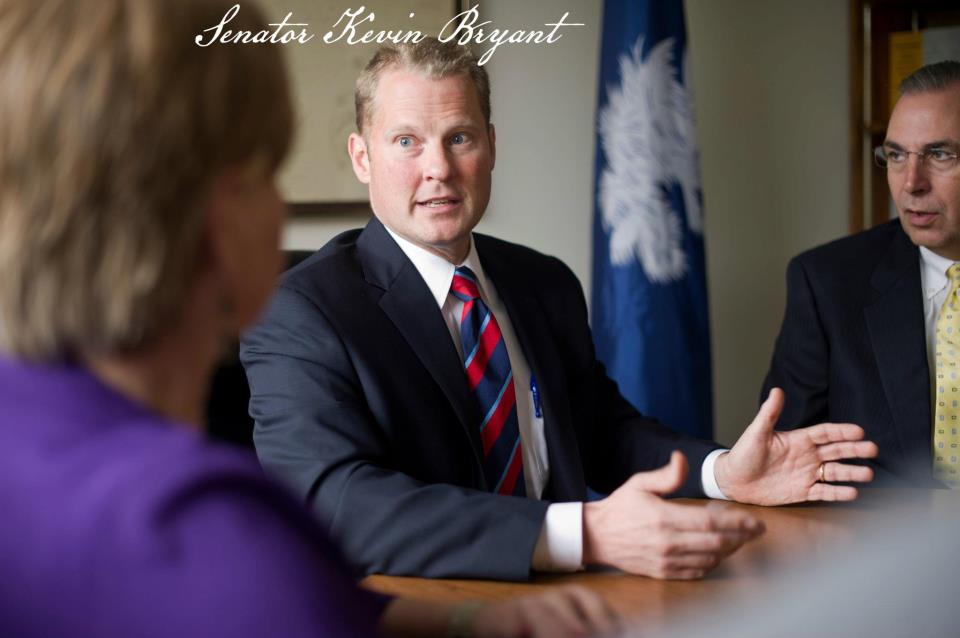 We’ve had 3 firehouse chats, Centerville, Pendleton, & Powdersville. As my prepared remarks have been focusing on the Department of Employment and Workforce and the Retirement System Investment Commission, there have been constituent comments on other issues.
We’ve had 3 firehouse chats, Centerville, Pendleton, & Powdersville. As my prepared remarks have been focusing on the Department of Employment and Workforce and the Retirement System Investment Commission, there have been constituent comments on other issues.
-How many more people are employed today than back in 2008 number wise?There are 60,749 more people employed in South Carolina in October 2014 then the same period in 2008. In 2008, the total employed number was 1,984,750 and was 92% of the labor force. In 2014, total employed in October was at 2,045,499 and 93.3% of the labor force.
-Why does the water taste bad? Is the water coming from the lake?The water source is Lake Hartwell. The Anderson Regional Joint Water System is responsible for treating the water. The problem began during warm weather when algae began growing in the lake. Clemson research the problem and treated the algae.
The following is their conclusion:
Taste and odor compounds have significantly declined in the ARJWS raw water following algaecide application, and concentrations of algaecide active ingredients in water have returned to background.
Based on the data that we have acquired to date, we are very optimistic that the recent algae treatment near the water intake in Hartwell Lake to control production of taste and odor compounds will be successful. Depending on how long the water takes to get from Anderson to customers, we should notice a difference in the taste of the water soon.
This is the only algae treatment that we anticipate
this year. We are continuing to monitor the lake in the vicinity of the water intake and will be conducting more comprehensive research on the water in this area in the coming months.
-We have a new director of LLR. What happened to the one we had? LLR’s new director is Richele Taylor. The previous director, Holly Pisarik, will be assisting the new director of SCDSS, Susan Alford, during the transition. Holly will be doing this for the next several months, no announcement has been made for her future plans.
-Whitehall Rd 40 years ago, children walked across the road to school. Now it’s overcrowded. What is the schedule for widening Whitehall?
There is not a funded project to widen Whitehall Road. An intersection improvement project is progressing for Whitehall at Dixon and Sullivan Roads. The project, being a safety project, is to target known high traffic collisions areas. The benefit to Whitehall will be reduced collisions frequency and better traffic flow from turning movements to and from Whitehall Road. The “Y” intersections and triangle of roads that are presently Whitehall with Sullivan and Dixon will likely be reconstructed to form two separate “T” intersections with turn lanes on Whitehall.
There is a widening project for Whitehall Road included in the ANATS unconstrained Long Range Plan that is unranked and considered a “Wish List” type project beyond their capability to fund.
-Where is lottery money going?
Generally speaking lottery funds must be spent on education of which K-12 and Higher Education are eligible. The legislation also allows a small portion to be spent to address gambling addiction. Additionally, the funds must be spent to supplement and not supplant educational programs as of the time of passage of the initial legislation in 2001.
-What are we doing in the state to stop common core?
The short answer is that the SC Department of Education (SCDE) and the Education Oversight Committee (EOC) have been working on the requirements of Act 200.
The long answer is that the SCDE had two writing teams (one for Math, one for ELA) and provided the EOC with their draft recommendations on October 21/22. The EOC then had its review panels in turn review and comment on the proposed standards.
As of December 16, 2014, after reviewing proposed Math Standards for comprehensiveness, rigor, and organization the EOC review panel found that a number of recommendations would be needed. For ELA, however, the panel concluded, that the proposed standards need a complete re-write; this recommendation was based upon the unanimous recommendation of the 25-member ELA review panel. (The SCDE also has a review panel reviewing what their writing teams proposed. This information has, of course, also been shared with SCDE, so they are aware of the EOC review panel response.
-On immigration, SC is suing Feds along with other states, what is happening with that
Recently, Michigan joined the states in the law suit. It will take several months of legal work before we see some real action. Texas is doing all the major work and is responsible for all costs of the lawsuit, no costs to SC taxpayers.
-We’ve got one of the highest corporate property taxes in the country. Do you think anything is going to come up in the general assembly to talk about this subject, and will they try to attack that subject? Where do you stand?
As I’ve always said, we’ve got an out of control spending appetite in South Carolina. We can’t compete globally unless we reduce the tax burden on our businesses. I support any efforts to lower property taxes.
-Are you advocating raising property tax to eliminate income tax?
No. The proposal would actually increase growth and tax revenue from the boost in the economy.
-Over the last 5 years we’ve paid back $1 billion to feds, email said they were on track to pay rest back, there’s talk about growing trust fund to pay rest in 5 years. Can you double the length of time to pay it back?
Chairman Alexander has asked our subcommittee to consider all proposals to reduce the unemployment tax burden on our employers.
-Why is Powdersville under Greenville instead of under Powdersville? In 2006 the Powdersville Area was moved from “ANATS” (Anderson Area Transportation Study) to “GPATS” (Greenville Pickens Area Transportation Study). This was a decision made by the Department of Transportation. I am a member of ANATS, and Rep. Joshua Putnam is a member of GPATS. During our deliberations on transportation next year, I would like to readdress this move.
-Where is all the gas tax money going?
Here is a link to the DOT’s projects by county
-Why is AT&T not covered by the public service commission?
Normally, the PSC covers those utilities that consumers have not choice. Water, Electricity, Natural Gas fall into this category. Most homes are in the service area for more than one telephone & cable television services, therefore, these do not fall into the purpose of the PSC.
-Some commissioners in SC are voted on, but serve as a freebie to state, why are they fined when income disclosures are late?
These disclosures are an attempt to prevent conflicts of interest, fraud, etc. Should an unpaid position be subject to fines? Good question. We’ll give it some thought.
-SC overwhelmingly supported the Constitutional Definition of Marriage, yet one Federal Judge ruled it unconstitutional. What can we do?
We are in the process of exploring our options. I supported the Defense of Marriage Act signed by President Clinton in the 1980’s. At the time, Ron Paul was against this definition. He claimed the constitution gives the Federal Government no authority to define marriage. I now realize he was right. Now the Federal Government is re-defining marriage.
-Where do you stand on recall?
I support recall, especially for offices like the one I have that is over 2 years. The triggers need to be just right. If it’s too high, there’s no change to remove an elected leader. If it’s too low, every losing campaign will try to undo the wishes of the voters.
-What do you think about term limits for all public elected offices? I support term limits but will not self impose.





 American energy is the fuel that drives our way of life. From wind to solar, geothermal to hydroelectric, oil to natural gas, and coal to nuclear, our nation should adopt an aggressive all-of-the-above, free market strategy to achieve North American energy independence. Preserving the freedom of every American to pursue happiness through energy production means more jobs, lower gas prices and cheaper home electric bills. By opening more areas for production, rolling back creativity-stifling regulations and reforming our tax code, the federal government can expand the energy renaissance we are already seeing on private lands to public lands, and across our entire economy. Most importantly, when Americans are free to dream and innovate, they will always find safer, cleaner, cheaper, and more efficient ways to produce and use energy.
American energy is the fuel that drives our way of life. From wind to solar, geothermal to hydroelectric, oil to natural gas, and coal to nuclear, our nation should adopt an aggressive all-of-the-above, free market strategy to achieve North American energy independence. Preserving the freedom of every American to pursue happiness through energy production means more jobs, lower gas prices and cheaper home electric bills. By opening more areas for production, rolling back creativity-stifling regulations and reforming our tax code, the federal government can expand the energy renaissance we are already seeing on private lands to public lands, and across our entire economy. Most importantly, when Americans are free to dream and innovate, they will always find safer, cleaner, cheaper, and more efficient ways to produce and use energy.